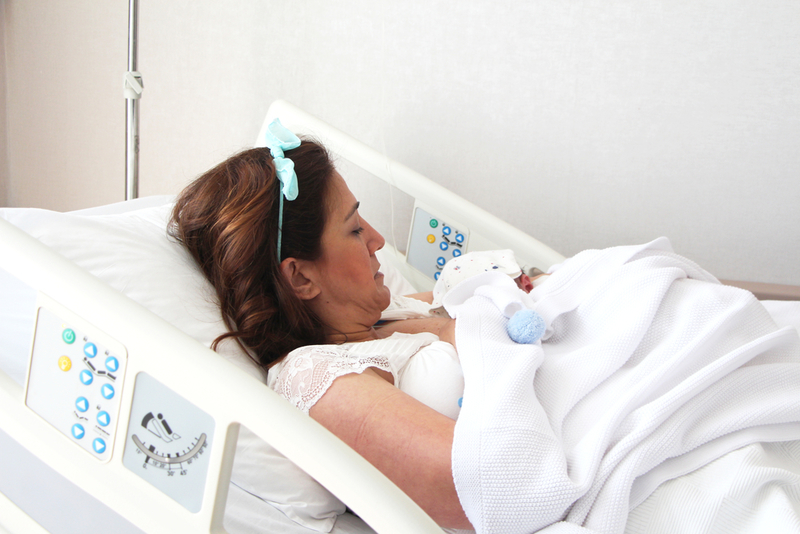ERAS pathway helps C-section mothers reduce recovery time and improve outcomes
Newswise Aug 06, 2018

A new enhanced recovery after surgery process—also known as ERAS—has been developed and implemented at the University of Alabama at Birmingham to help enhance a mother’s recovery after a Cesarean delivery, one of the most common surgeries performed in the United States.
A Cesarean delivery is classified as major surgery with a much longer recovery than after a vaginal delivery because a mother’s abdomen has been surgically opened to safely remove the baby. A part of a combined effort by UAB anesthesiologists, maternal-fetal medicine specialists, obstetricians, neonatologists, pharmacists, and labor and delivery nurses, this new ERAS pathway will use evidence-based methods to help mothers recover after a Cesarean section in a more optimized manner and gets them back to their baseline as soon as possible.
“With roughly 25% of deliveries at UAB being Cesarean births, we knew that we needed to take a constructive look at the recovery process to make sure all mothers were receiving optimal care and that our team was helping them maximize their healing,” said Mark Powell, MD, assistant professor in UAB’s Department of Anesthesiology and Perioperative Medicine. “Many people underestimate the recovery needed after a Cesarean delivery and here at UAB, we are confident these new guidelines will benefit both mother and baby.”
Updated guidelines to the ERAS pathway include:
- Beverage intake before surgery to keep mother hydrated, including water and clear sports drinks
- Walking after surgery to encourage healing to incision site and improve body function
- Incorporation of non-opioid medications for pain management
- Early eating and drinking postoperation to enable mother to regain strength
Among the updated guidelines, one important aspect is safely limiting opioid intake, which will help provide infants with optimal breast milk and avoid the potential of subsequent opioid abuse. Drinking before and after surgery will also give the mother the nutrients needed for the operation and subsequent recovery.
As part of the ERAS process, nurses on the care team begin communicating with mothers scheduled for a Cesarean delivery about recovery prior to her day of admission. From there, they then follow the mother through the process of admission, preoperative preparation, surgery, and recovery, all while implementing the ERAS guidelines to optimize the mother’s recovery.
“We’re really proud that we are able to bring this ERAS pathway to the UAB and Greater Birmingham community, giving mothers more recovery options,” Powell said. “We believe that, as we continue to implement this pathway, mothers undergoing Cesarean delivery will benefit from optimized recoveries with less opioid use. This is clearly better for both mothers and their babies.”
-
Exclusive Write-ups & Webinars by KOLs
-
Daily Quiz by specialty
-
Paid Market Research Surveys
-
Case discussions, News & Journals' summaries